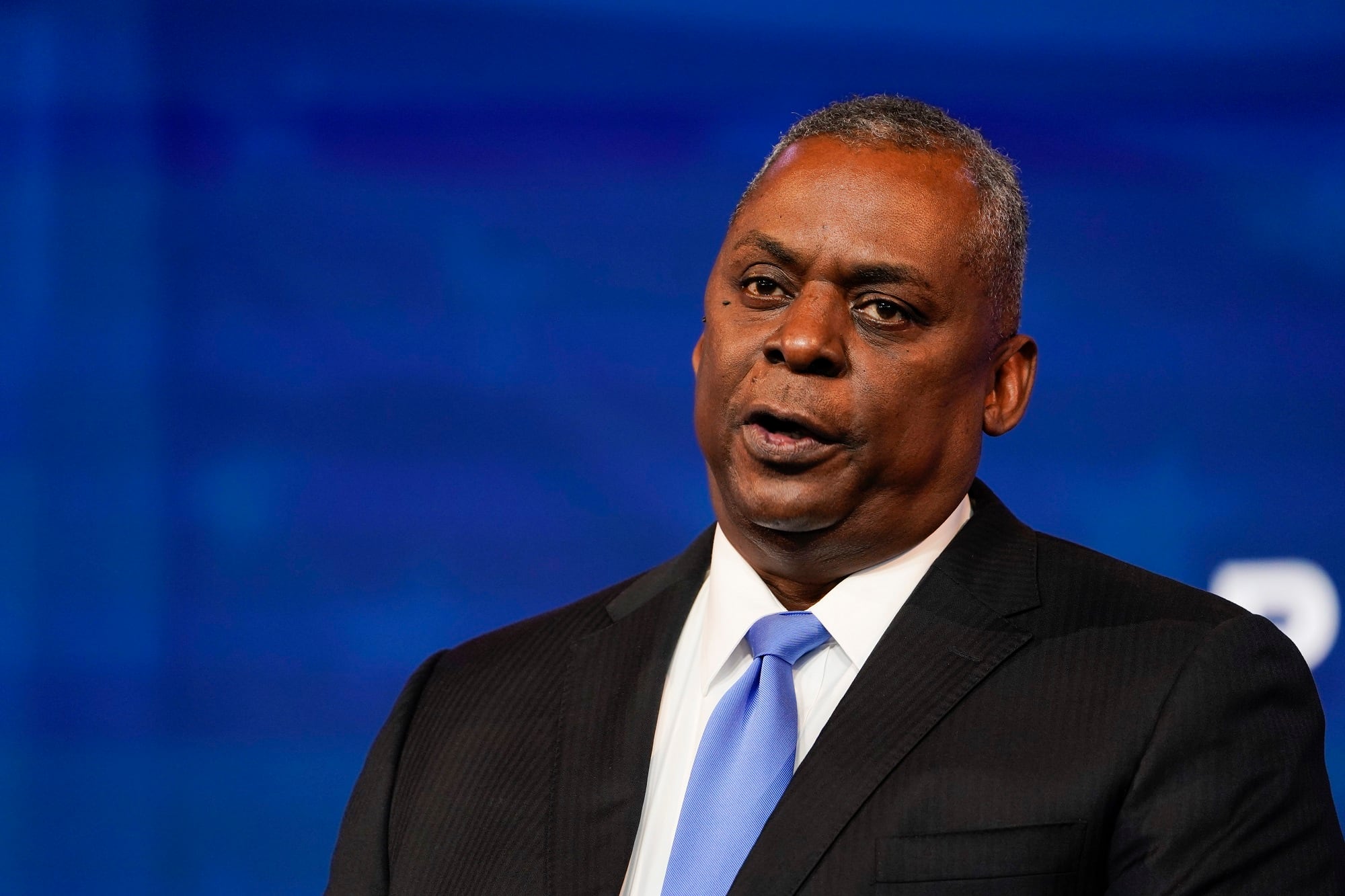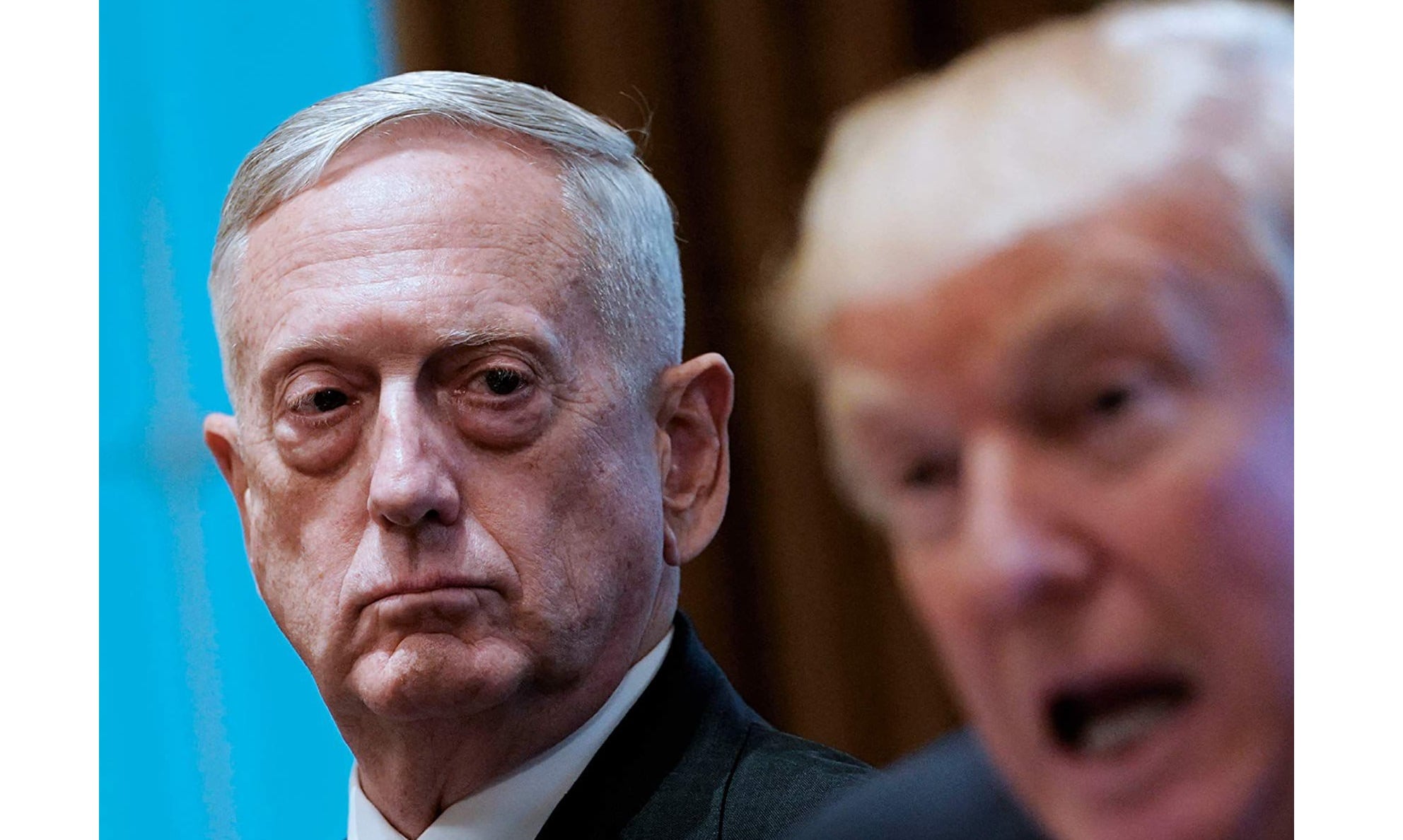Retired Marine general and former Secretary of Defense Jim Mattis took a shot at his old boss, former President Donald Trump, while talking about the challenges current Secretary of Defense Lloyd Austin might face in the job.
“I hope he’s not in quite the same situation I was in terms of his superior, frankly,” Mattis said of Austin as part of Thursday night’s “Oh So Social” conversation series hosted by the Office of Strategic Services Society.
Austin took the job after being confirmed by a 93–2 vote on Jan. 22.The former Army general became the first Black man to take lead the Pentagon as the Secretary of Defense.
During the online conversation Mattis went on to describe the lack of direction the Defense Department had when he first took the job, recalling that he had spent the month before his confirmation requesting a defense strategy from the Joint Chiefs of Staff and then Deputy Secretary of Defense Robert Work.
Eventually on his first day on the job he directly asked the leaders where the defense strategy was.
“The chairman looked me in the eye and said we don’t have one and we haven’t had one in 10 years,” Mattis said.
RELATED

The former secretary said he got to work immediately writing the strategy that would guide the nation’s national defense decisions.
“It was a strategy-free environment,” Mattis said. “It is not that now and I’m hoping that he can adjust off the strategy with that we’ve written.”
In addition to building off the national defense strategy the Defense Department is working under Mattis said he hopes Austin works to “demilitarize” the nation’s foreign policy.
“Over the last 25 years we’ve over militarized our foreign policy, and he is going to have to deal with that,” Mattis said.
President Joe Biden indicated in an essay for The Atlantic that Austin would do just that as Secretary of Defense.
“[Austin] and I share a commitment to empowering our diplomats and development experts to lead our foreign policy, using force only as our last resort,” Biden said in the essay.
Thursday’s talk with Mattis went beyond advice for the current defense secretary and included general advice on leadership, the need for strong alliances and even the future of military technology.
“I think one thing that won’t change is it’ll be the skills of the individual troops that we see more and more prized today over the raw numbers of the industrial age armies,” Mattis said.
“A few troops with the top-line skills will have an influence far beyond what any squad leader in World War Two, Korea, and dare I say, Iraq 2003 ever could have forecast because the change is coming so quickly,” Mattis added.
The Marine Corps is hoping to get a jump on improving the skills of frontline troops, as it tests outs a revamped and extended infantry training program that will better prepare Marines for a future battlefield.
Mattis also mused about the potential of robotic soldiers heading to the battlefield without any fear and how that would change the very nature of war.
“What do you do today where technology is going so fast it’s out in front of legislation in front of poets, philosophers, lawyers?” Mattis asked.
As far as risks to the nation goes, Mattis said the No. 1 risk may not an ascendant China or the imperial ambitions of Russia, but rather the insider threat that led to the Jan. 6 insurrection attempt.
“The lack of unity on the consensual underpinnings of our democracy, what we saw on Jan. 6 fermented by a sitting president,” may be the main threat to the nation, Mattis said Thursday.
Mattis said the best route America can take to prevent the downfall of democracy would be to look deeply at the root causes.
“We’ve got to go back to our first principles … and we better start treasuring them and protecting them like there are as precious as they are,” Mattis added.




